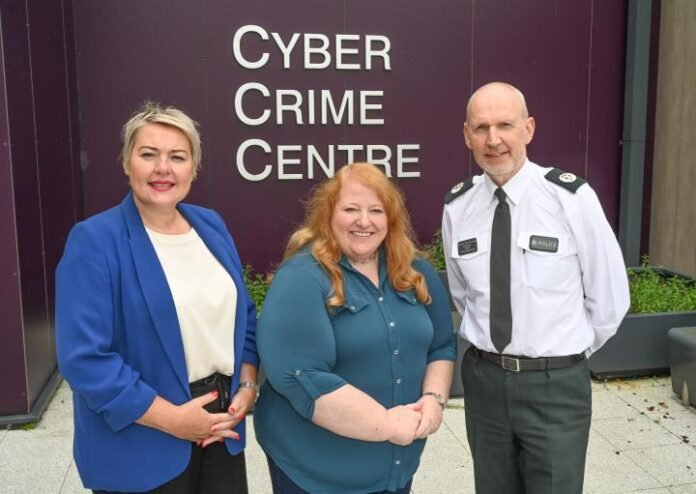Strengthening Cyber Crime Legislation: A Commitment from the Justice Minister
During a recent visit to the Police Service of Northern Ireland (PSNI) Cyber Crime Centre, Justice Minister Naomi Long emphasized her commitment to enhancing legal frameworks surrounding cyber crime. Her statement, “I will take every possible opportunity to strengthen the law in this area,” underscores the urgent need for robust legislation to combat the growing threats posed by cybercriminals.
The Need for Enhanced Tools and Resources
Minister Long articulated her determination to ensure that the PSNI, in collaboration with other criminal justice agencies, is equipped with the necessary tools to mitigate the harm caused by cyber crime. She acknowledged the dual nature of the online world, highlighting both its benefits and the myriad of criminal activities that now occur within it. “We all recognize the benefits and opportunities that the online world presents,” she stated, while also noting that “almost every offence may involve some online element.” This recognition calls for a proactive and forward-thinking approach to law enforcement.
Engaging with Frontline Staff
During her visit, Minister Long met with the dedicated staff at the Cyber Crime Centre, gaining insight into the challenges they face, particularly in cases involving children. The emotional and psychological toll of dealing with such sensitive issues was not lost on her. She expressed her gratitude for their invaluable work in protecting vulnerable individuals and bringing perpetrators to justice. “It is difficult, complex, and often distressing work,” she remarked, acknowledging the frontline role these professionals play in safeguarding the public.
The Scale of Cyber Crime
The statistics presented by the PSNI paint a stark picture of the scale of cyber crime in Northern Ireland. In 2025 alone, the Cyber Crime Centre received 10,010 CCTV exhibits and processed 1,796 devices for digital forensics, including mobile phones and computers. These devices are linked to a wide range of serious offences, from human trafficking and drug-related crimes to murder and sexual offences. This data highlights the urgent need for enhanced investigative capabilities and legal frameworks to address these evolving threats.
Acknowledging Operational Challenges
Assistant Chief Constable Davy Beck welcomed Minister Long to the Cyber Crime Centre, emphasizing the importance of continuous training and upskilling for officers in this rapidly evolving field. “The cyber world is incredibly fast-paced and always evolving,” he noted, stressing the necessity for law enforcement to remain technically capable. The officers at the Cyber Crime Centre are tasked with investigating a diverse array of crimes, from sophisticated software targeting vulnerable victims to evidence captured by smart devices.
The Role of Technology in Modern Policing
The Cyber Crime Centre serves as a vital hub for the analysis of digital evidence across Northern Ireland. It provides law enforcement with advanced digital and technical investigative capabilities essential for modern policing. As Beck pointed out, while not all crime is digital, the reality is that most crimes now have a digital component. This evolution necessitates a shift in how law enforcement approaches crime-solving, integrating technology into traditional investigative methods.
Conclusion: A Call to Action
Minister Long’s visit to the PSNI Cyber Crime Centre marks a significant step towards addressing the challenges posed by cyber crime. Her commitment to strengthening the law and supporting law enforcement agencies reflects a broader recognition of the complexities of modern criminality. As the online landscape continues to evolve, so too must our legal frameworks and investigative capabilities. The collaboration between government, law enforcement, and technology experts will be crucial in safeguarding the public and ensuring justice for victims of cyber crime.
For more insights into the ongoing efforts to combat cyber crime and protect the public, stay informed through local news outlets and community resources.


